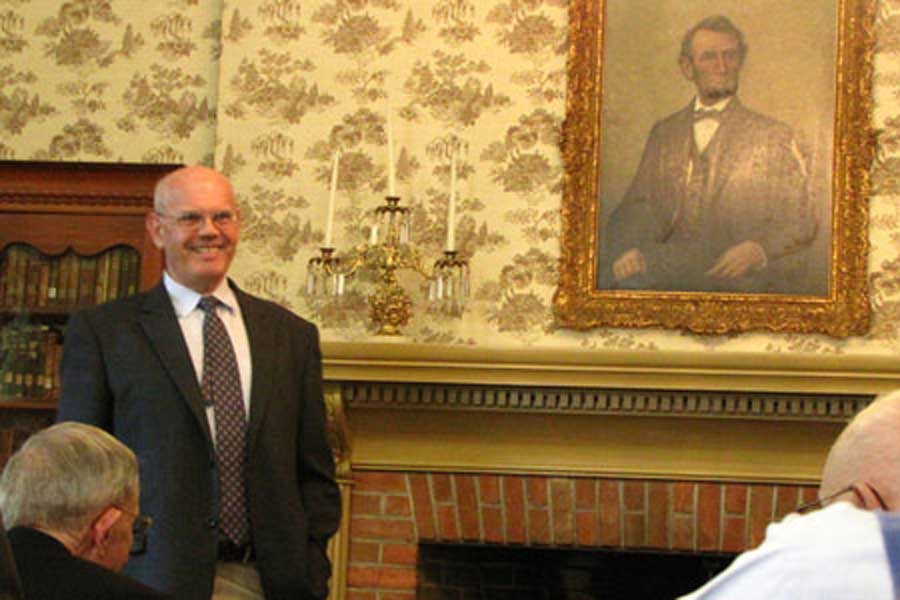

Venture Boldly

Office of Communications
2 East South Street
Galesburg, IL 61401


by Laura Pochodylo '14
The Knox College Lincoln Studies Center sponsored a talk titled "The Emancipation Proclamation: Myths and Realities," presented by American history scholar James Oakes.
Oakes, a professor of American history at the Graduate Center, City University of New York, has written multiple books on slaveholding history, his most recent being The Radical and the Republican: Frederick Douglass, Abraham Lincoln, and the Triumph of Antislavery Politics. He has written and published articles on the Emancipation Proclamation and the progress of the abolition of slavery during the American Civil War.
In his September 14 talk at Knox, Oakes disputed popular myths about the Emancipation Proclamation and the process of ending slavery.
He discussed the two major beliefs the public holds about the Emancipation Proclamation, one being that Lincoln freed all slaves with the stroke of his pen on the Proclamation, and another view of Lincoln as a reluctant emancipator.
These myths, Oakes said, have "erased the history." They collectively forget that the Union Army was emancipating slaves as early as 1861, and that the Emancipation Proclamation was an important continuation and expansion -- but not the beginning -- of that process.
"We've been blinded by these myths, and we always have been," Oakes said. "They can't both be right, but can they both be wrong?"
Oakes also addressed what took Lincoln so long to sign the Proclamation, and he discussed the less well-known ramifications of the Proclamation, like allowing freed slaves to be enlisted in the Union Army, a benefit Oakes said was significant to the North winning the war. Some slaves were enlisted through a process called enticement, in which Southern slaves left plantations and headed north to enlist in the Army with the help of Union soldiers. This hadn't been permitted before the Emancipation Proclamation.
Ai Miller, a first-year Knox student from Toledo, Ohio, attended the lecture and the follow-up question-and-answer session, saying that she was drawn to the event because of her fascination with history.
"I'm just really interested in Lincoln," Miller said. "I had no idea about how the Emancipation Proclamation lifted the ban on enticement, which was interesting to learn."
Published on September 18, 2012